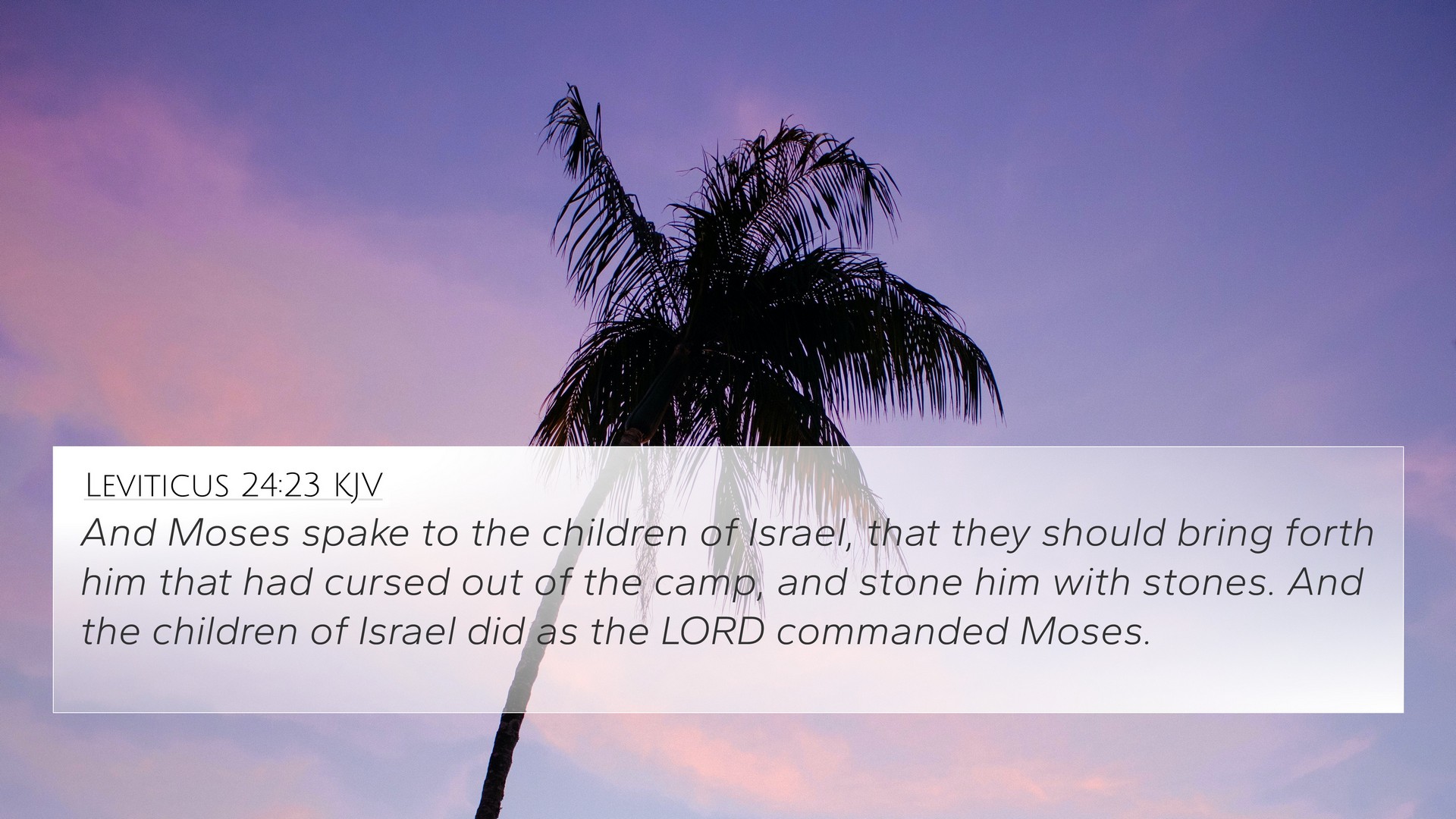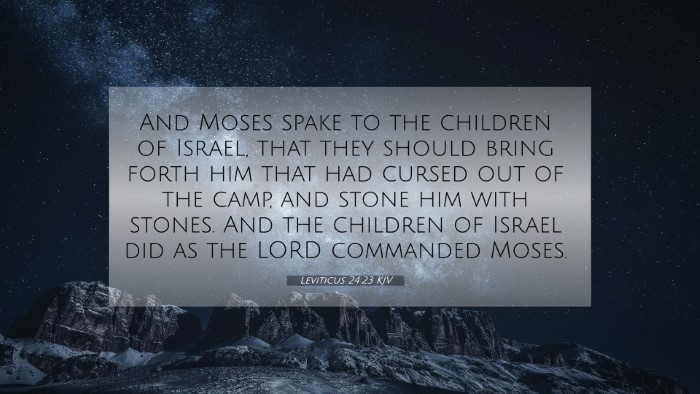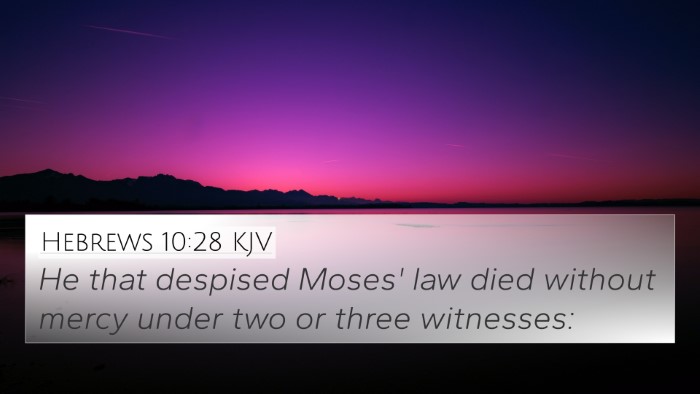Understanding Leviticus 24:23
Leviticus 24:23 states: "And Moses spoke to the children of Israel, and they brought out of the camp the one who had cursed, and stoned him with stones. So the children of Israel did as the Lord commanded Moses."
Summary of Meaning
This verse concludes the narrative concerning the blasphemer, emphasizing the obedience of the Israelites to God's command through Moses. It illustrates the seriousness of blasphemy and the necessity for justice within the community.
Insights from Commentaries
-
Matthew Henry:
Henry emphasizes the importance of divine authority in judgment. The act of stoning signifies a communal response to grievous sin, reinforcing the necessity to maintain holiness in the camp of Israel.
-
Albert Barnes:
Barnes discusses the principle of justice being served. The immediate execution demonstrates God's intolerance for blasphemy and aims to deter others from such actions.
-
Adam Clarke:
Clarke notes that the punishment reflects a societal commitment to uphold the reverence for God’s name. It serves as a warning about the consequences of cursing God or His laws.
Bible Verse Cross-References
Leviticus 24:23 can be cross-referenced with several other biblical texts, illustrating the themes of justice and the sanctity of God's name:
- Exodus 22:28 - Emphasizes not reviling God or speaking ill of rulers.
- Leviticus 20:2-3 - Discusses the consequences of child sacrifice and idol worship, linking to communal responsibility.
- Deuteronomy 13:5 - Addresses the punishment for false prophets, reinforcing the need for obedience to God.
- Matthew 12:31-32 - Jesus speaks on the unforgivable sin of blaspheming against the Holy Spirit.
- James 3:10 - Highlights the danger of cursing and blessing from the same mouth.
- Romans 1:32 - Discusses the consequences for those who not only sin but also approve of sin in others.
- 1 Peter 4:17 - Peter mentions that judgment begins at the house of God, echoing the seriousness of sin in the community.
Connections Between Bible Verses
Understanding the interconnectedness of scripture can enrich our interpretation of Leviticus 24:23. Here are some thematic connections:
- Justice: The theme of divine justice recurs throughout the Bible, highlighting God's standards for behavior and the resulting consequences for the community when those standards are violated.
- Holiness: The concept of being set apart for God’s purpose ties closely with the punishment for blasphemy, as God calls His people to reflect His holiness in their actions.
- Divine Authority: This narrative illustrates the importance of recognizing and submitting to God’s authority, a recurring theme throughout scripture.
Tools for Bible Cross-Referencing
For those interested in exploring biblical themes and connections, various tools can assist in uncovering the depth of scripture:
- Bible Concordance: A resource that lists words and phrases along with their specific locations within the Bible, aiding in finding related verses.
- Bible Cross-Reference Guide: A tool that presents direct links between verses, facilitating comparative study.
- Cross-Reference Bible Study: A method that encourages looking up interconnected verses to deepen understanding of biblical themes.
Comparative Bible Verse Analysis
By analyzing verses in a comparative manner, one can uncover how different passages inform and explain each other. This method is particularly useful for examining the doctrine of sin and punishment.
Practical Tips
- How to Use Bible Cross-References: Always look for verses that discuss similar themes, maintaining context when making connections.
- Identifying Connections Between Old and New Testaments: Pay attention to how New Testament authors reference Old Testament laws and prophecies.
Conclusion
Leviticus 24:23 provides a powerful reminder of the community’s responsibility to uphold God's standards. By engaging with cross-references and utilizing biblical study tools, one can gain a deeper understanding of both the text and its application in our lives today.
Further Reflection
Consider how the principles learned in Leviticus 24:23 apply to modern contexts, particularly in discussions about accountability within communities of faith.






